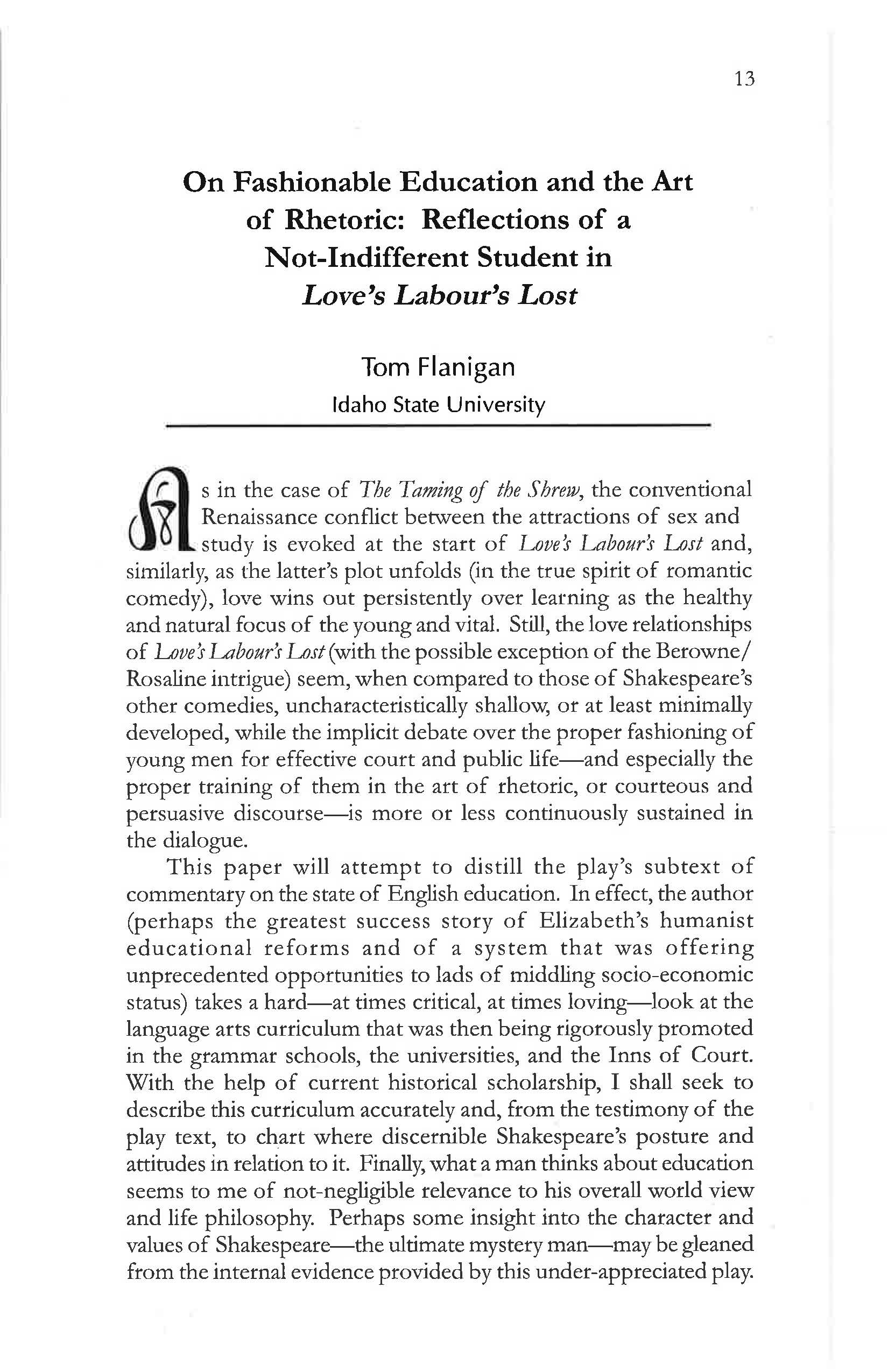On Fashionable Education and the Art of Rhetoric: Reflections of a Not-Indifferent Student in Love's Labour's Lost
Main Article Content
Abstract
As in the case of The Taming of the Shrew, the conventional Renaissance conflict between the attractions of sex and study is evoked at the start of Love’s Labour’s Lost and, similarly, as the latter’s plot unfolds (in the true spirit of romantic comedy), love wins out persistently over learning as the healthy and natural focus of the young and vial. Still, the love relationships of Love’s Labour’s Lost (with the possible exception of the Berowne/Rosaline intrigue) seem, when compared to those of Shakespeare’s other comedies, uncharacteristically shallow, or at least minimally developed, while the implicit debate over the proper fashioning of young men for effective court and public life—and especially the proper training of them in the art of rhetoric, or courteous and persuasive discourse—is more or less continuously sustained in the dialogue.
